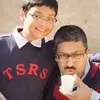Gurugram-based Continua Kids is helping specially-abled children grow and learn better with its neurotherapy solutions
Continua Kids is helping uniquely-abled children and parents understand disability, support the child’s growth and development, and provide the necessary therapy, intervention, and treatment required to live a comfortable life.
A 2018 survey conducted by the National Statistical Office (NSO), a branch of the Ministry of Statistics and Programme Implementation, found that about 2.2 percent of Indians are disabled.
While the prevalence of disability among males was 2.4 percent, among females, it was 1.9 percent, the survey reported. The National Health Portal (NHP), India, has classified disabilities into speech impairment, hearing impairment, movement, mental illness, mental retardation, multiple disabilities, and others.
Disability affects both adults and children equally. However, the latter finds it difficult to live a fully-rounded life that they deserve due to inadequate healthcare and family support. Further, in India, disabled children face barriers such as physical, financial, as well as attitudinal.
Hence, to help such disabled children, Puja Kapoor and Himani Khanna started Continua Kids. Founded in December 2016 by the paediatricians, the Gurugram-based startup is a research-driven holistic centre that provides medically supervised therapies, early intervention programmes, and support to uniquely-abled children.
A startup for the specially-abled
Paediatric Neurologist Puja Kapoor and Himani Khanna, a Paediatrician, were former colleagues at the Artemis Hospital, Gurugram.

Co-founders and directors (from left to right) Puja Kapur and Himani Khanna
Puja did her Paediatric fellowship from the Jaslok Hospital, Mumbai, and later did a fellowship in Electrophysiology from the Case Western University, Cleveland, Ohio.
“As a paediatric neurologist, my job was to diagnose the disease and send the child for required therapies. I realised that parents had to travel to one centre for occupational therapy, another one for speech therapy, and so on. Also, there were a lot of centres where the science and purpose of the methodology of therapies were not explained to the parents,” Puja adds.
Himani, on the other hand, did her postgraduate degree in Paediatrics from the Mahatma Gandhi Institute of Medical Sciences, Sewagram in Maharashtra, and her specialisation in Developmental Paediatrics from Thiruvananthapuram Kerala University.
The duo joined hands to start Continua Kids with a vision to provide special needs children with a safe place with the best healthcare possible, and a place where they could impart knowledge to parents about the modalities and prognosis of the type of disease, rather than merely diagnosing them and leaning on therapists.
“We decided to be case managers where we wanted to be truly responsible for the overall progress of the child. In this way, we can empower parents in a much more effective way. So the conceptualisation of Continua Kids occurred, where every scientifically proven therapy for specially-abled kids would be given under one roof by qualified therapists and doctors,” the co-founders add.

A child coloring at a continua center
The startup deals with neurological emergencies and deviances, starting from newborn babies to 18-year-old children. It also counsels pregnant women and their families regarding neurological disorders in children, in cases where one child is already suffering from it.
Continua Kids was initially funded with Rs 2 crore by angel investors Vishal Gulati and Amit Goel, who believe strongly in the cause of giving individuals with disabilities the rights they deserve.
How does Continua Kids work?
Whenever a patient approaches Continua Kids centre, the first step lies in the correct diagnosis, for which the doctors and psychiatrists apply various scales and ask parents to fill a few questionnaires.
Next, a team of doctors make an individual intervention plan for every child and then keep assessing every two months about the progress, where again new targets and goals are set.
Once a diagnosis is established, the next step is to counsel the parents.
“If the child is normal, parents are always glad to hear the news, but if the diagnosis bears anything different than a normal child, parents get a feeling of doom that takes hours of counselling, and then a patient goes into denial. This is the period where they need a lot of support from not only family members, but also each one of us in society,” Himani says.

Therapy room at continua kids
A step in the right direction
Speaking about how Continua Kids educates families and society about the importance of early intervention and treating specially-abled children in the right manner possible, the co-founders say,
“Fortunately, the neurological deviances which we deal with, most of them are non-life-threatening. The flip side is that parents don’t take them seriously enough to warrant immediate attention. This delay in initiating treatment leads to results being delayed as well. Communication at every step is the cornerstone of managing kids with special needs. We try to give absolute right information with scientific evidence-based interventions available for managing kids.”
At present, Continua Kids has nine centres in north India in Gurgaon, Delhi-Qutub, Malviya Nagar, Gurgaon Sector 5, Faridabad, Noida, Amritsar, and Bhiwadi.
At these centres, the startup provides physiotherapy, occupational therapy, speech therapy, applied behaviour analysis, therapy exclusively for autism, special, and remedial education, yoga therapy, psychologist, and psychiatrist support, under the leadership of a paediatric neurologist and a developmental paediatrician.
It charges between Rs 600 and Rs 800 for each one-hour therapy session with regular follow-ups. For children belonging to a low-income class, these prices are reduced and sponsorship is arranged with the support of the startup.
“We feel that no child should be left behind despite their social dynamics or financial status. We wanted to cater to everybody, so we created a system where we could help these underprivileged children in whatever way we could,” Himani adds.

A child learning at the center.
The Continua Kids app
The Continua Kids app is an effective way to keep a record of a child’s medical history. It also helps doctors at various centres, as well as parents, informed about the treatments and therapies the child is currently undergoing or has undergone in the past.
“It encourages parents to track the development of their child, and helps detect red flags and danger signs at the right time and reach out to a healthcare professional early,” Himani adds.
The app is available free of cost on Apple’s App Store and the Google Play Store.
It has a series of questionnaires and screening tests, which parents can access and figure out whether their child is at high or low risk, before visiting a centre.

“It encourages one to go paperless and the bills generated from the reception can easily be accessed by parents through the app including the reports and assessments made by us after every therapy session. There is a feedback option on the app which patients can see. This way, the doctor, therapist, and reception are all on the same forum” Puja says.
The most common neurodevelopmental disorders, which the doctor’s witness at the startup’s centres are autism, attention deficit hyperactivity disorder (ADHD), learning disability (dyslexia), developmental delay, speech disorders, intellectual delay, cerebral palsy, seizure disorders, neuro-regression, as well as neurological deviances.
“The patient may or may not already have a diagnosis when they come to us. Even when they are diagnosed, it becomes our duty to take a detailed history, and do a proper examination, so that we don’t miss anything,” the duo says.
Currently, the Continua team has a staff of 80 therapists across various centres.
Impacting young lives
Continua Kids has helped over 7,000 children over the last three years suffering from neuroatypical disorders such as autism, cerebral palsy, learning disabilities, mood swings, addictions, and suicidal tendencies.
It has helped in areas ranging from psychology, psychiatry, development, and neurology.
"The therapies what we provide is merely a bridge for the question which arises in almost all parents – what will happen to our child when we are no longer there. We want a child not only to be independent but also, would like them to contribute significantly to society. If we can instil this confidence in the parents who are approaching us, our job is well done” the duo believes.

Art therapy at continua kids
Further, it arranges awareness drives and information sessions in schools across north India.
Every Sunday, the startup makes sure to carry out one thing or another. It has conducted a marathon and a walkathon to support its cause. Further, information sessions and workshops are carried out in its centres for the parents.
Ankita Kumari the mother of three-year-old Adhrit Kashyap, says, “My son was extremely hyperactive and wasn’t able to maintain eye contact. His actions were not clear and he couldn’t understand certain commands. That’s when one of my relatives recommended me to Himani Khanna in Gurugram, and I visited her from Jharkhand. My son started occupational therapy and then applied behaviour analysis (ABA) with the help of Continua Kids. Today, he can maintain proper eye contact, his actions are more clear, and his eating habits have improved.”
Sabuj Samanta, the father of four-year-old Dravin, says,
“My son, Dravin, has been going to Continua Kids for almost three years now. We noticed that he had a delay in his development at 18 months of age, and someone had suggested Continua Kids in Gurugram to me. We visited Himani, who helped in his treatment. Since then, he has undergone occupational therapy, speech therapy, and most recently ABA therapy. Since I haven’t been to visit other centres, I can’t compare Continua Kids to other places. However, I have seen an improvement in terms of learning and development in my son through their help.”
The road ahead
Speaking about the road ahead, Himani and Puja say,
“Currently, we are focussing on streamlining our processes and developing our app, so that patients can get the benefit from much better home programmes, and consolidating our existing centres. We have a very ambitious plan to come up with 100 centres in the next five years, and we are looking for further investment. We have a road map for our progress, and we would like to stick to our plan of achieving our vision.”
(Edited by Suman Singh)









